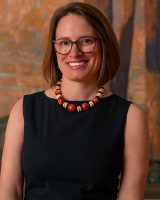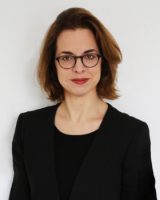CAA News Today
CAA Signs on to ACLS + Council of Graduate Schools + The Phi Beta Kappa Society Joint Statement on Cuts to the NEH
posted by CAA — April 04, 2025
CAA has signed on to the American Council of Learned Societies (ACLS), Council of Graduate Schools (CGS), and The Phi Beta Kappa Society joint statement on cuts to the National Endowment for the Humanities (NEH). In conjunction with these societies, we encourage the current administration to reconsider dramatic reduction of staff and ask Congress to protect the NEH.
“Critical thought, cultural memory, and wisdom fostered by the humanities remain crucial to a vibrant democracy. The NEH has upheld these values since its founding. For less than the cost of a postage stamp to every American, the NEH’s thoughtful grantmaking helps community and scholarly life thrive.”
Read the full statement here.
OTHER LEARNED SOCIETIES AND INSTITUTIONS WHO HAVE SIGNED ON TO THE JOINT STATEMENT
American Academy of Religion
American Association for Italian Studies
American Folklore Society
American Historical Association
American Musicological Society
American Philosophical Association
American Political Science Association
American Society for Theatre Research
American Society of Overseas Research
American Sociological Association
American Studies Association
Association for Asian Studies
Association for Slavic, East European, and Eurasian Studies
Association for the Study of African American Life and History
Association of Research Libraries
Association of University Presses
Linguistic Society of America
North American Conference on British Studies
Oral History Association
Organization of American Historians
Renaissance Society of America
Society of Biblical Literature
CAA Publications Need You—Apply to Serve on a Journal!
posted by CAA — April 03, 2025
Be a part of the beating heart of CAA! All four of CAA’s Field-Leading Publications are seeking candidates to fill several Board seats and editorial positions!
- Art Journal Open is seeking an Editor-in-Chief to serve a three-year term
- Art Journal is seeking a Reviews Editor to serve a three-year term
- The Art Bulletin is seeking two (2) Editorial Board Members to serve four-year terms
- caa.reviews is seeking a new Editor-in-Chief to serve a three-year term and Field Editors in four areas to serve three-year terms.
Descriptions of the roles, expectations, and detailed application instructions are provided in the links above.
Deadline: April 18
CAA Signs on to National Humanities Alliance Statement on Threats to the NEH
posted by CAA — April 03, 2025
CAA has signed on to the National Humanities Alliance (NHA) statement on threats to the National Endowment for the Humanities (NEH), released in response to the Department of Government Efficiency (DOGE) targeting the NEH. DOGE aims to reduce staff, cut grant programs, and rescind grants that have already been awarded. CAA stands with NHA in supporting the NEH mission and appealing to members of Congress to intervene and ensure the NEH fulfills its Congressional mandate. Along with NHA and several other societies, CAA fervently believes the NEH “…has a positive impact on every congressional district,” and “…cutting NEH funding directly harms communities in every state and contributes to the destruction of our shared cultural heritage.”
Read the full statement here. We strongly urge the CAA community to act by contacting Congress in support of the NEH. You can do so in a matter of moments via this easy form!
OTHER LEARNED SOCIETIES AND INSTITUTIONS WHO HAVE SIGNED ON TO THE NHA STATEMENT
American Academy of Religion
American Antiquarian Society
American Association for Italian Studies
American Association for State and Local History
American Historical Association
American Musicological Society (AMS)
American Oriental Society
American Philosophical Association
American Society for Eighteenth-Century Studies
American Sociological Association
Association for Asian Studies
Association of Research Libraries
Association for Slavic, East European, and Eurasian Studies
Association of University Presses
Coalition of State Museum Associations (COSMA)
German Studies Association
Linguistic Society of America
Modern Language Association
National Council on Public History
National Council of Teachers of English (NCTE)
North American Conference on British Studies
Organization of American Historians
The Phi Beta Kappa Society
Renaissance Society of America
Society of American Archivists
Society of Biblical Literature
University of Connecticut Humanities Institute (UCHI)
CAA Signs on to the American Historical Association Statement Defending the Smithsonian
posted by CAA — April 03, 2025
CAA has signed on to the American Historical Association (AHA) statement defending the Smithsonian Institution after the release of a recent executive order and accompanying fact sheet claiming Smithsonian museums are displaying “…improper, divisive, or anti-American ideology.” This is a gross mischaracterization of the role and impact of the Smithsonian.
“Patriotic history celebrates our nation’s many great achievements. It also helps us grapple with the less grand and more painful parts of our history. Both are part of a shared past that is fundamentally American. We learn from the past to inform how we can best shape our future. By providing a history with the integrity necessary to enable all Americans to be all they can possibly be, the Smithsonian is fulfilling its duty to all of us.”
Read the full statement in defense of the institution here.
OTHER LEARNED SOCIETIES AND INSTITUTIONS WHO HAVE SIGNED ON TO THE AHA STATEMENT
American Association for Colleges of Teacher Education
American Association of Geographers
American Society for Environmental History
Association for Slavic, East European, and Eurasian Studies
Association for the Study of African American Life and History
Association of Research Libraries
Civil Rights Movement Archive
Conference on Asian History
Education4All
Kurt Vonnegut Museum and Library
Labor and Working Class History Association
LGBTQ+ History Association
Midwestern History Association
National Association of Diversity Officers in Higher Education
National Council on Public History
Network of Concerned Historians
North American Victorian Studies Association
Oral History Association
PEN America
Society for Historians of the Gilded Age and Progressive Era
Society for the History of Children and Youth
Society for US Intellectual History
Southern Association for Women Historians
Woodhull Freedom Foundation
CAA Signs on to The Phi Beta Kappa Society + ACLS Joint Statement on Executive Order to Dismantle Department of Education
posted by CAA — March 24, 2025
CAA has signed on to the Phi Beta Kappa Society and The American Council of Learned Societies (ACLS) joint statement addressing the Executive Order to close the US Department of Education. We join these societies in urging the administration to rescind this order, given the “…catastrophic implications for students, faculty, communities, and the nation.”
Read the full statement here. We strongly urge those in the CAA community to also make use of The Phi Beta Kappa Society toolkit, which contains resources to guide how members can take action.
OTHER LEARNED SOCIETIES WHO HAVE SIGNED ON TO THE PHI BETA KAPPA SOCIETY + ACLS JOINT STATEMENT
American Association for Italian Studies
American Association of Geographers
American Folklore Society
American Historical Association
American Philosophical Association
American Political Science Association
American Society for Environmental History
American Society for Theatre Research
American Society of Overseas Research
American Sociological Association
Association for Asian Studies
Association for Slavic, East European, and Eurasian Studies
Association for the Study of African American Life and History
German Studies Association
Linguistic Society of America
Modern Language Association
National Council on Public History
North American Conference on British Studies
North American Victorian Studies Association
Organization of American Historians
Renaissance Society of America
Rhetoric Society of America
Society for Cinema and Media Studies
Society of Biblical Literature
CAA Signs on to AHA–OAH Joint Statement on Federal Censorship of American History
posted by CAA — March 17, 2025
CAA has signed on to the American Historical Association (AHA) and the Organization of American Historians (OAH) joint statement on Federal Censorship of American History.
We stand with AHA and OAH in recognizing the historical dangers of censorship and in condemning “…recent efforts to censor historical content on federal government websites, at many public museums, and across a wide swath of government resources that include essential data. New policies that purge words, phrases, and content that some officials deem suspect on ideological grounds constitute a systemic campaign to distort, manipulate, and erase significant parts of the historical record. Recent directives insidiously prioritize narrow ideology over historical research, historical accuracy, and the actual experiences of Americans.”
OTHER LEARNED SOCIETIES AND INSTITUTIONS WHO HAVE SIGNED THE AHA-OAH JOINT STATEMENT
American Academy of Religion
American Studies Association
Association of University Presses
Conference on Asian History
Education for All
French Colonial Historical Society
Historians for Peace and Democracy
Labor and Working-Class History Association
National Council for the Social Studies
National Council on Public History
Network of Concerned Historians
North American Conference on British Studies
PEN America
Society for US Intellectual History
Society of Architectural Historians
Western History Association
World History Association
Call for Applications: CAA-Getty International Program 2026
posted by CAA — March 12, 2025
CAA will begin accepting applications for the CAA-Getty International Program on March 15! Thanks to generous support from Getty, the program—now in its fifteenth year—enables scholars from around the world to travel to Chicago to participate in the CAA 114th Annual Conference, February 18–21, 2026. The program features a preconference colloquium on international issues in art history, followed by a week of sessions, workshops, events, museum visits, and professional development opportunities.
To date, the program has gathered 179 scholars from sixty-one countries, and continues to have significant global impact on the field. These annual convenings have yielded collaboration, community, and lasting connections while also serving to diversify CAA membership, increase international presence at CAA conferences, and foster greater cross-cultural discourse around international art scholarship and practice.
We also invite alumni of the program to apply to return and support first-time participants, take part in program events, and present new scholarship at the Annual Conference in our dedicated CAA-Getty International Program Alumni Session.
The individuals selected for the 2026 program will receive a one-year CAA membership, have their conference registration fee, travel expenses, and accommodation costs covered, and will receive per diems for meals and incidentals.
International art historians, curators, and other visual arts professionals are encouraged to apply!
Visit our CAA-Getty page for eligibility and application requirements. All interested Getty applicants, whether new scholars or alumni, will need to submit a general conference application (individual presentation proposal) and indicate their interest in participating in the CAA-Getty International Program.
Deadline: April 25
This program is made possible with support from Getty.
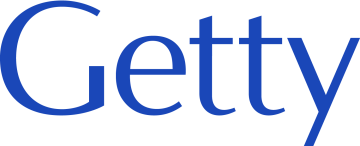
The Michael Aurbach Fellow for Excellence in Visual Art Announced!
posted by CAA — March 07, 2025
Congratulations to this year’s recipient of the Michael Aurbach Fellowship for Excellence in Visual Art, Eli Craven!
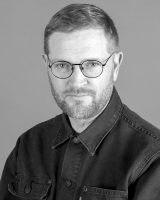
Eli Craven is a lens-based artist based in Lafayette, Indiana. Craven’s research resides in the critical investigation of the image and its relationship to ideologies of sexuality, desire, and death. He holds an MFA in photography from the University of Illinois at Urbana-Champaign and an undergraduate degree in photography from Boise State University. His work is exhibited nationally and internationally, most recently at Kant Gallery, Copenhagen; KlompChing Gallery, Brooklyn; and at Blue Sky, Oregon Center for the Photographic Arts, in Portland. Select clients include Corriere della Sera, gestalten publishers, Penguin Random House, and the Paris National Opera. He is currently an assistant professor of photography at Purdue University.
HONORABLE MENTIONS
 Jeff Beebe received his BFA from the American Academy of Art College, Chicago, and his MFA from the School of Visual Arts (SVA) in New York, and has taught art and design in both cities. In addition, he has spent over a decade working as a graphic designer in the publishing and education industries. For the last fifteen years his work has focused on Refractoria, an imagino-ordinary world that is equal parts autobiography and fantasy.
Jeff Beebe received his BFA from the American Academy of Art College, Chicago, and his MFA from the School of Visual Arts (SVA) in New York, and has taught art and design in both cities. In addition, he has spent over a decade working as a graphic designer in the publishing and education industries. For the last fifteen years his work has focused on Refractoria, an imagino-ordinary world that is equal parts autobiography and fantasy.

Chloe Pascal Crawford is a multidisciplinary artist highlighting the labor undertaken by disabled people to set the conditions for their existence in public spaces. Her work is often exhibited in relation to her perpetually seated sightline, challenging conceptions of lowness as an abject or overlooked place. She has shown at the Museum für Moderne Kunst, Frankfurt; Artists Space, New York; VAE, Raleigh, NC; and Hua International, Berlin. Crawford has been a recipient of fellowships from the Ragdale Foundation, Santa Fe Art Institute, and the Vermont Studio Center. She has a BFA from the University of the Arts, Philadelphia, an MFA from Mason Gross School of the Arts, and attended the Whitney Museum Independent Study Program. She is currently an assistant professor at Michigan State University.
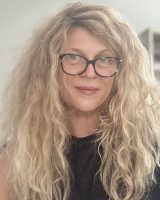 Natalija Mijatović received a BFA from the University of Montenegro, and an MFA in painting from the Pennsylvania Academy of the Fine Arts. Mijatović has exhibited internationally, including at the National Gallery of Serbia; CUE Art Foundation, New York; Philadelphia Museum of American Art; and the Dom Museum, Vienna, among many others. Mijatović is a recipient of the Joan Mitchell Foundation MFA Grant, the Faculty Excellence Award from the Savannah College of Art and Design; Center for Contemporary Art (Podgorica, Montenegro ) Award; and was in residence as Cité Internationale des Arts, Paris. She is professor in and chair of the Department of Art and Design at the University of Delaware.
Natalija Mijatović received a BFA from the University of Montenegro, and an MFA in painting from the Pennsylvania Academy of the Fine Arts. Mijatović has exhibited internationally, including at the National Gallery of Serbia; CUE Art Foundation, New York; Philadelphia Museum of American Art; and the Dom Museum, Vienna, among many others. Mijatović is a recipient of the Joan Mitchell Foundation MFA Grant, the Faculty Excellence Award from the Savannah College of Art and Design; Center for Contemporary Art (Podgorica, Montenegro ) Award; and was in residence as Cité Internationale des Arts, Paris. She is professor in and chair of the Department of Art and Design at the University of Delaware.
Congratulations 2025 Awards for Distinction Recipients!
posted by CAA — February 25, 2025
Each year at the Annual Conference, CAA honors outstanding achievements in visual arts and art scholarship during Convocation by announcing the annual Awards for Distinction recipients. Congratulations to the 2025 awardees!
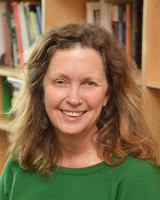 |
Distinguished Award for Lifetime Achievement in Writing on Art
Carol Armstrong |
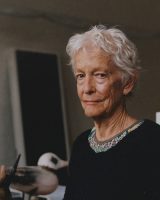 |
Distinguished Artist Award for Lifetime Achievement
Joan Jonas |
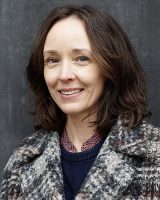 |
Art Journal Award
Sara Callahan, “When the Dust Has Settled: What Was the Archival Turn, and Is It Still Turning?,” Art Journal, Spring 2024 |
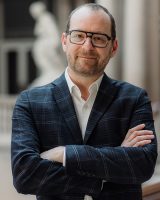
|
Alfred H. Barr Jr. Award Emerson Bowyer and Anne-Lise Desmas, eds., Camille Claudel, J. Paul Getty Museum/The Art Institute of Chicago, 2023 |
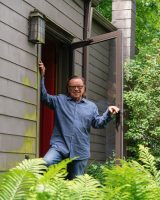
|
Alfred H. Barr Jr. Award for Smaller Museums, Libraries, Collections, and Exhibitions
Joe Baker and Laura Igoe, eds., Never Broken: Visualizing Lenape Histories, James A. Michener Art Museum/The University of Pennsylvania Press, 2024 |

|
Frank Jewett Mather Award
Philip Glahn and Cary Levine, The Future Is Present: Art, Technology, and the Work of Mobile Image, MIT Press, 2024 |
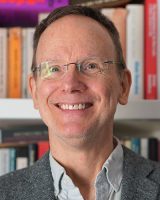 |
Frank Jewett Mather Award
Grant H. Kester, Beyond the Sovereign Self: Aesthetic Autonomy from the Avant-Garde to Socially Engaged Art, Duke University Press, 2023 |
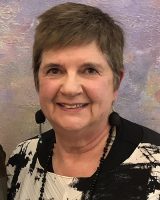 |
Charles Rufus Morey Book Award
Janet Catherine Berlo, Not Native American Art: Fakes, Replicas, and Invented Traditions, University of Washington Press, 2023 |
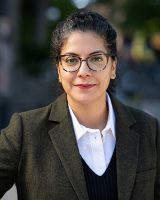 |
Arthur Kingsley Porter Prize
Monica Bravo, “Mineral Analogs: Carleton Watkins’s Photographs and the Gold Standard,” The Art Bulletin, Fall 2024 |

|
CAA/AIC Award for Distinction in Scholarship and Conservation
Kimberley Muir and Jilleen Nadolny |
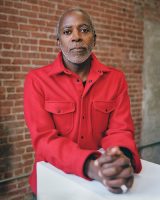 |
Artist Award for a Distinguished Body of Work
Arnold J. Kemp |
 |
Distinguished Teaching Award (Art)
Bruce Jenkins |
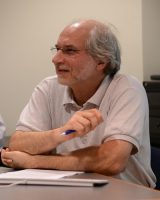 |
Distinguished Teaching Award (Art History)
Michael Leja |
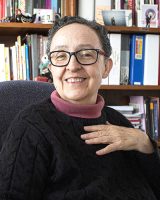 |
Distinguished Feminist Award (Art)
Mónica Mayer |
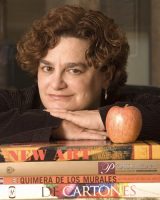 |
Distinguished Feminist Award (Art History)
Karen Cordero Reiman |
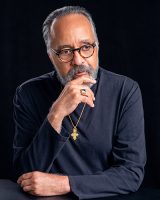 |
Excellence in Diversity Award
Arturo Lindsay |
Learn more about Awards for Distinction on our website and nominate individuals for 2026 Awards for Distinction now by completing this form!
Millard Meiss Publication Fund: Apply Now + Congrats to Fall 2024 Grantees!
posted by CAA — February 25, 2025
CAA is now accepting applications for the Millard Meiss Publication Fund. Twice yearly, grants are awarded through this fund to support book-length scholarly manuscripts in art history, visual studies, and related subjects which have been accepted by a publisher on their merits but cannot be published in the most desirable form without a subsidy. Thanks to the generous bequest of late Professor Millard Meiss, CAA has been awarding these grants since 1975.
Visit our website to learn more about the application process, criteria, and to apply.
Deadline: March 15
Congratulations to the Meiss Fall 2024 Grantees!
Yong Cho, The Woven Image: The Making of Mongol Art in the Yuan Empire (1271–1368), Yale University Press
Robert Maxwell, The Memory of Past Acts: Presence, Loss, and Making History in Illuminated Cartularies, c.1050 – c.1220, Pontifical Institute of Mediaeval Studies
Amanda Cachia, Hospital Aesthetics: Disability, Medicine, Activism, Manchester University Press
John Peffer, Private Subjects: Family Photography in South Africa and the Right to Opacity, Duke University Press
Rachel Silveri, The Art of Living in Avant-Garde Paris, University of Chicago Press




